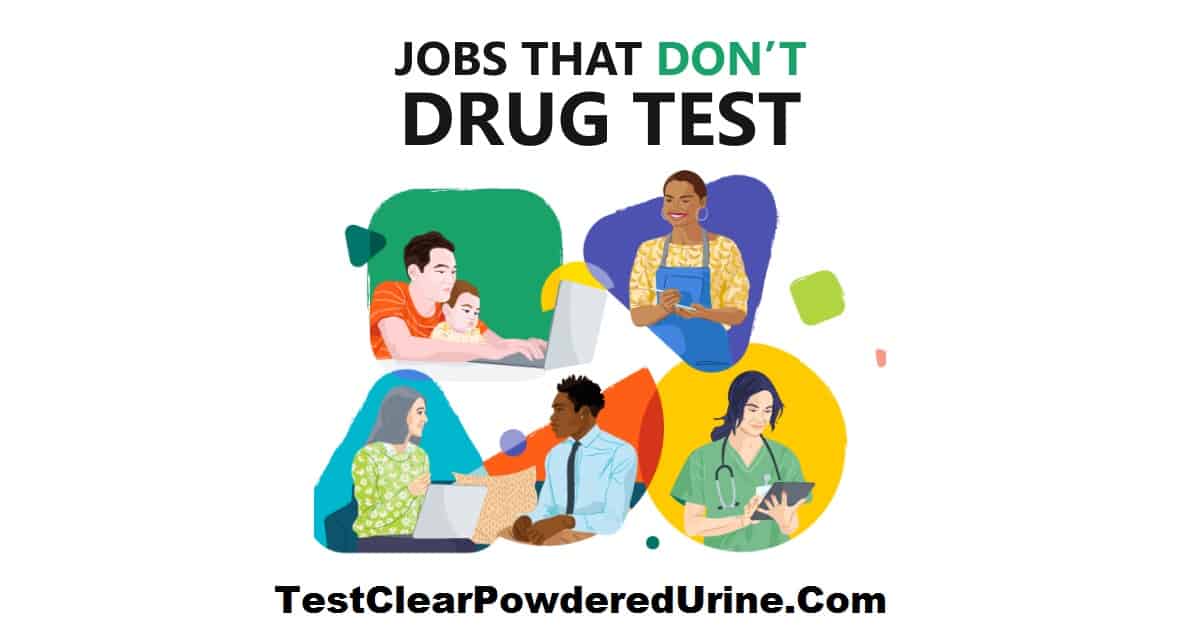In today’s competitive job market, finding employment that aligns with personal values and preferences is essential. For some individuals, that includes seeking jobs that don’t require drug testing. While drug testing is a common practice in many industries, there are still several career paths that offer drug-free employment opportunities. In this article, we will explore some of these job options, shedding light on the possibilities for individuals who wish to avoid drug testing requirements.
Table of Contents
Table of Contents
- Introduction
- Jobs That Don’t Drug Test
- Technology Industry
- Graphic Design and Creative Fields
- Writing and Content Creation
- Customer Service and Sales
- Education and Tutoring
- Fitness and Personal Training
- Entrepreneurship and Freelancing
- Advantages of Drug-Free Employment
- Personal Privacy and Autonomy
- Trust and Employee Morale
- Focus on Skill and Experience
- Encouraging Responsibility and Accountability
- Preparing for Drug Testing vs. Drug-Free Jobs
- Emphasizing Drug-Free Policies in the Workplace
- Implementing Health and Wellness Programs
- Employee Education and Support
- Creating a Positive Work Environment
- Conclusion
1. Introduction
In recent years, the job market has witnessed a growing interest in drug-free employment opportunities. Many professionals seek careers where they won’t encounter drug testing, either due to personal beliefs or concerns about privacy. This article aims to explore various job sectors that generally do not require drug testing, providing insights for job seekers who prioritize a drug-free work environment.
2. Jobs That Don’t Drug Test
Technology Industry
The technology sector is known for its progressive and innovative work culture. Tech companies often focus on skills and expertise rather than drug testing potential employees. Positions such as software developers, web designers, data analysts, and IT consultants frequently offer drug-free employment.
Graphic Design and Creative Fields
Creative industries, including graphic design, video production, and animation, are typically more concerned with an individual’s artistic talents than their personal habits. Job opportunities in these fields tend to be more lenient on drug testing requirements.
Writing and Content Creation
Content creation, whether in the form of writing, blogging, or social media management, often prioritizes a candidate’s creativity and communication skills. Drug testing is less common in these professions, making them attractive options for individuals seeking drug-free workplaces.
Customer Service and Sales
Many customer service and sales positions focus on interpersonal skills and the ability to connect with customers. Drug testing is less prevalent in these areas as the emphasis is on communication and problem-solving abilities.
Education and Tutoring
The education sector, including teaching and tutoring roles, typically places significance on one’s academic qualifications and teaching capabilities. Drug testing is not a standard requirement in this industry.
Fitness and Personal Training
Careers in fitness and personal training often prioritize a candidate’s physical capabilities and training expertise. While some organizations may conduct drug tests for specific roles, many fitness-related jobs do not require testing.
Entrepreneurship and Freelancing
Individuals who venture into entrepreneurship or freelancing have the opportunity to create their own businesses or work as independent contractors. In such cases, drug testing is not a standard procedure, allowing for more flexibility in career choices.
3. Advantages of Drug-Free Employment
Personal Privacy and Autonomy
Opting for a drug-free workplace ensures that individuals can maintain their personal privacy and autonomy. Employees can feel secure in knowing that their off-duty lifestyle choices remain their own concern, allowing them to separate work life from personal life confidently.
Trust and Employee Morale
Employers who choose not to implement drug testing policies demonstrate trust in their employees. This trust fosters a positive work environment, leading to higher employee morale and increased job satisfaction.
Focus on Skill and Experience
By omitting drug testing from the hiring process, employers can focus on evaluating a candidate’s skills, experience, and qualifications. This results in hiring individuals based on their capabilities rather than disqualifying them based on personal choices.
Encouraging Responsibility and Accountability
Drug-free workplaces encourage employees to take responsibility for their actions. Instead of relying on mandatory testing, employers can implement workplace policies that promote responsible behavior and accountability.
4. Preparing for Drug Testing vs. Drug-Free Jobs
Job seekers may face the decision between positions that require drug testing and those that do not. Preparing for drug testing involves abstaining from substances that may trigger positive results. On the other hand, candidates seeking drug-free employment can focus on showcasing their skills, experience, and passion for the job during the interview process.
5. Emphasizing Drug-Free Policies in the Workplace
Creating a drug-free workplace involves more than simply avoiding drug testing. Employers can take proactive steps to promote a healthy and drug-free work environment, which benefits both the company and its employees.
Implementing Health and Wellness Programs
Organizations can establish health and wellness programs to encourage employee well-being and reduce substance use. These programs may include fitness activities, stress management workshops, and access to mental health resources.
Employee Education and Support
Educating employees about the dangers of drug abuse and providing support for those seeking help is essential. Employers can collaborate with external resources or counselors to offer guidance and assistance to employees in need.
Creating a Positive Work Environment
A positive work environment fosters camaraderie and encourages employees to make responsible choices. Recognizing and rewarding achievements, promoting open communication, and maintaining a healthy work-life balance contribute to a thriving drug-free workplace.
- Q: Are drug-free jobs limited to specific industries? A: No, drug-free employment opportunities can be found across various industries, including technology, creative fields, customer service, and education.
- Q: How can I find job listings for drug-free positions? A: You can search for job postings online on job portals and company websites. Additionally, networking and reaching out to industry-specific associations can be helpful.
- Q: Do drug-free workplaces conduct random drug testing after hiring? A: Drug-free workplaces usually refrain from conducting random drug testing unless there is a reasonable suspicion of drug use or specific safety requirements.
- Q: Is drug testing completely prohibited in drug-free jobs? A: While drug testing is not a standard practice in drug-free jobs, some employers may require it for specific roles, particularly those involving safety or sensitive responsibilities.
- Q: Can previous drug use affect my chances of getting a drug-free job? A: Past drug use may not necessarily disqualify you from drug-free positions, as employers often prioritize present capabilities and qualifications over past choices.
- Q: How can I prepare for interviews in drug-free workplaces? A: Focus on highlighting your relevant skills, experience, and passion for the job. Emphasize your commitment to maintaining a drug-free lifestyle if the topic arises.
- Q: What are the benefits of working in a drug-free environment? A: Working in a drug-free environment promotes personal privacy, trust, employee morale, and a focus on skills and experience, creating a positive and responsible work culture.
- Q: Can I request accommodation for prescription medication use during drug testing? A: Yes, you can discuss any prescription medications you are taking with your employer to ensure they do not interfere with drug testing results.
- Q: Are drug-free workplaces less safe than those with mandatory drug testing? A: Drug-free workplaces can maintain a high level of safety through proper training, clear policies, and promoting a responsible work culture.
- Q: Can freelancers and entrepreneurs benefit from drug-free employment practices? A: Yes, as independent contractors, freelancers, and entrepreneurs have more control over their work environments, they can prioritize drug-free policies to align with their values.
6. Conclusion
Choosing a drug-free workplace can be a priority for various individuals, and it is encouraging to know that numerous industries provide employment opportunities without mandatory drug testing. From the technology sector to creative fields and beyond, professionals have the chance to pursue careers aligned with their values and beliefs. Moreover, promoting drug-free policies in the workplace can lead to enhanced employee trust, higher morale, and a focus on skills and expertise.
Remember, finding the right job involves careful consideration of individual preferences and the work environment. By exploring drug-free employment opportunities, individuals can work towards a fulfilling career that aligns with their values and aspirations.


